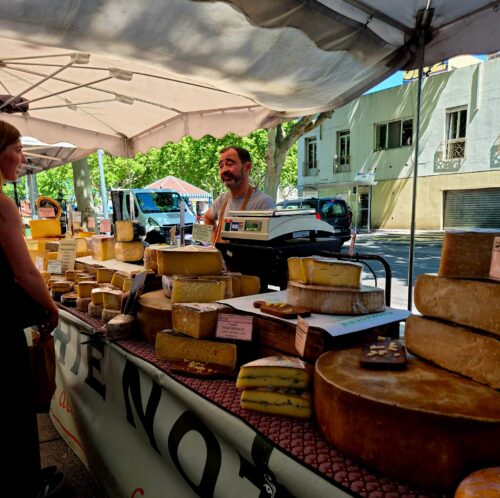We’ve all been trained. To politely place an order in a restaurant, we say “I would like a coffee, please” or “Can I have a coffee, please?”
So, when I first moved to Spain, I would order using the literal translations: “Querría un cafe, por favor [I would like a coffee, please]” or “Puedo pedir un cafe, por favor? [Can I order a coffee, please?]”
But soon enough, I was made aware that I sounded strange. “Eh, it’s grammatically correct, but it’s just not natural,“ my friend said. “You’re using too many unnecessary and formal words. If you want to sound like a native, go straight to the point.”
“Like how?”
“Ponme un cafe, por favor [Give me a coffee, please] or Traeme un cafe, por favor [Bring me a coffee, please.]”
“What?! But that sounds so . . . direct.”
“That’s the point.”
*
A typical order at the bar could be:
-Me pones un cafe, porfa. [Give me a coffee, please.]
-Vale. [Okay]
(Coffee is placed in front of you).
-Gracias (this is optional).
-Nada [casual way of saying “de nada”, nothing].
Unembellished. Transactional. It took me a while to get over how terse and impersonal these conversations sounded. For all the (many) words they use in conversation, the Spanish don’t waste any of it on transactional courtesy. I used to be on the verge of tears with how rude it seemed, but gradually, I’ve learned to soften to it. People are busy; they just want efficiency. They don’t need verbosity or exaggerated graciousness.
“Digame [Tell me]” is how they answer the phone.
“Me cobras? [Will you charge me?]” is a typical way to ask for the bill at the bar.
“‘Taluego [chewed up version of hasta luego]” is how they leave a bar.
Casualness and directness is not seen as rude. No offense is taken.
*
I had been so accustomed to Spanish straightforwardness that when I visited the South of France, the abundance of politeness in these parts (I’m not speaking of Paris which is a whole different country in itself) caused a minor culture-shock.
I entered a shop that offered some Provencal delicacies.
-Vous voulez goûter, madame? [Would you like to taste, madame?], the attendant asked me.
-Oui, s’il vous plaît.
After a taste, I thanked him.
-Avec GRAND plaisir, madame [With GREAT pleasure, madame.], he said with flourish and a slight nod of the head.
I almost felt the need to curtsy.
Each conversation was overflowing with courtesy that I was no longer used to. A conversation I caught at the bar went like:
-Bonsoir, monsieur. Je voudrais un champagne avec un petit glaçon, s’il vous plaît [Good evening, sir. I would like a champagne with a small piece of ice, please.]
-Comme vous voulez, madame [As you wish, madame]
(Champagne comes)
-Voici, madame. [Here you go, madame]
-Merci beaucoup, monsieur. [Thank you very much, sir]
-Je vous en prie [You’re welcome, said in a very formal way. Literally translated to something like “I beg you”]
Having been starved of this civility, I was captivated and charmed by the excess of words.
*
I landed in Madrid last night.
I hopped into a cab.
“Dime [Tell me],” the taxi driver said.
I gave him my address — not a word more, not a word less.
“Muy bien” and off we went.
“Ah” I thought. “Efficient use of words.”
I was back home.










